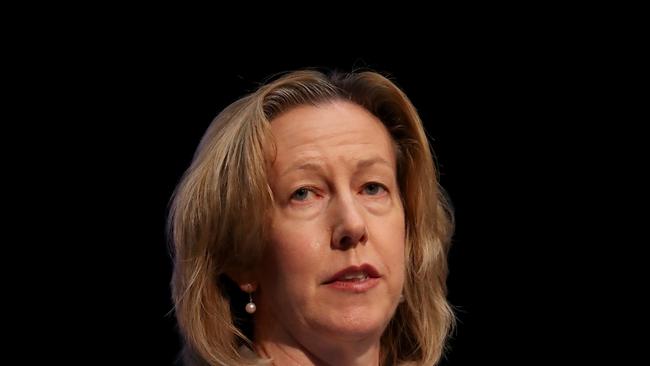Environmental groups ends claim to block Woodside’s $16.5bn LNG development
Efforts to block Woodside’s $16.5bn Scarborough development will be dismissed, as opponents reassess use of the courts amid a push by LNG industry to seek damages against any unsuccessful legal claim.
A legal challenge against the preliminary environmental approvals given to Woodside’s $16.5bn Scarborough LNG development will be dismissed, the latest victory for Australia’s gas industry against environmentalists that have looked to use the courts to block new developments.
The cessation, which removes the immediate threat to the project, implies environmentalists are now wary of using the courts to challenge LNG developments after a victory by Santos and its forceful claim for compensation seen to have set a legal precedent.
The Australian Conservation Foundation in 2022 asked the federal court to order a suspension of work on the project until an assessment is made about its potential impact on the Great Barrier Reef.
Woodside had secured approval for the project from the country’s offshore regulator, the National Offshore Petroleum Safety and Environment Management Authority, but the ACF said the project should be assessed by the federal minister for Environment under commonwealth laws.
While the action did not interrupt work on Scarborough, the threat of cessation – which likely had delayed the first gas from the project – had been lingering. The gas is destined for export markets, with Japanese, Korean and Taiwanese buyers all desperate for the supplies amid heightened global competition for supplies.
Woodside chief executive Meg O’Neill hailed the agreement to dismiss the case, as she made a thinly veiled reference to the spate of legal victories by Australia’s LNG industry.
“Litigation against energy projects like Scarborough is an ineffective way to pursue solutions to global climate and energy challenges. Such approaches create needless uncertainty for businesses, communities and the people who depend on the energy these projects produce,” said Ms O’Neill.
“The Scarborough Energy Project will make an important contribution to energy security in Western Australia while providing energy to Asian economies as they decarbonise. The project is supported by and aligns with the energy policies of both the Australian and WA governments.”

The dismissal of the claim comes just a few months after Santos scored a victory against efforts to block its own $5.7bn Barossa LNG development.
A Federal Court in January rejected a claim the gas giant’s proposed 262km pipeline would cause irreparable damage to First Nations people and their sites, a ruling which came just weeks after the National Offshore Petroleum Safety and Environmental Management Authority gave the gas giant the green light to resume drilling.
Drilling was delayed more than a year as Santos was forced to consult with enough people, while work on completing a 262KM pipeline was suspended for weeks as the Federal Court mulled the application launched by the Environmental Defenders Office.
Santos is looking to recoup damages, and it has indicated it will pursue the Environmental Defenders Office – the legal representatives behind the effort to block the pipeline, and others it deems as de facto claimants.
The EDO claims it was simply the legal counsel and should not be liable for claims. But should Santos find evidence it went beyond that brief, it is likely to seek claims from the legal group, which could cause substantial risk to the entity.
The threat of financial damages is seen by Australia’s gas industry as a key catalyst for the decision by the ACF to agree to the dismissal. The EDO was acting as legal counsel for the ACF.
MST Marquee energy analyst Saul Kavonic said the Santos ruling would have heightened the threat facing the ACF.
“The ACF and EDO’s green lawfare on this case was always a longshot, with nowhere near the chance of success compared to recent other green litigation pursued over environmental approvals, which ultimately failed as well,” he said.
“The EDOs despicable actions in their Barossa litigation subsequently exposed them to serious cost liabilities from the courts, and it appears they have backed down here out of fear their behaviour in this case could also see adverse costs awarded against them.”
The ACF said it elected to end its challenge against Woodside’s approval after determining it would likely be unsuccessful.
“Late last week it became apparent that the case was unlikely to succeed,” the ACF said in a statement.
“The reality is that Australia’s laws work in favour of fossil fuel interests. There is still no explicit requirement for climate damage to be considered under our key national nature law, the Environment Protection and Biodiversity Conservation Act. This means that, even today, major fossil fuel projects are being approved that will lock in huge volumes of carbon pollution well beyond 2050.”






To join the conversation, please log in. Don't have an account? Register
Join the conversation, you are commenting as Logout